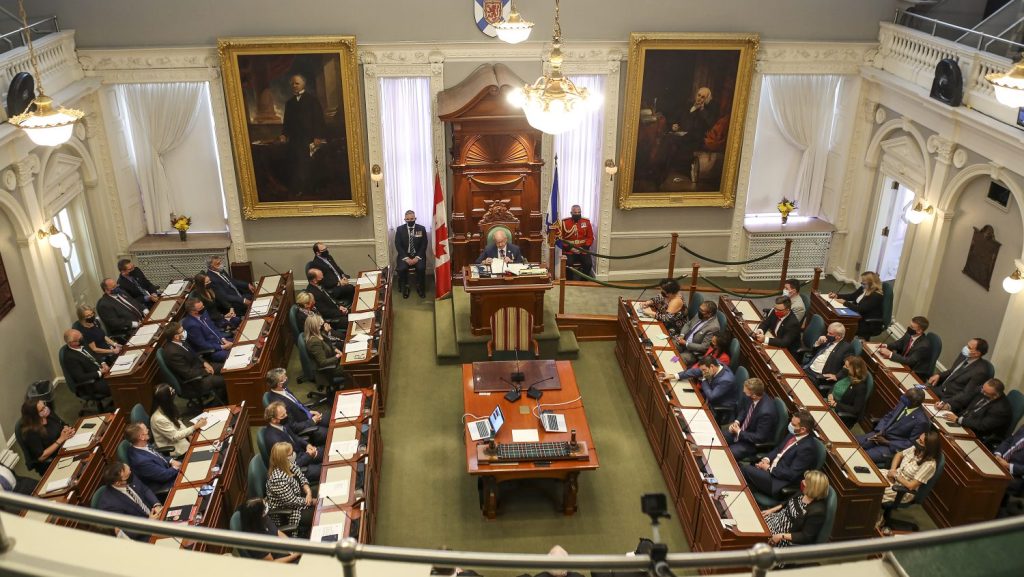N.S. legislature sitting marked by moves to consolidate power: Expert

Posted Mar 26, 2025 05:00:11 AM.
Last Updated Mar 26, 2025 10:11:50 AM.
With the Nova Scotia legislature expected to adjourn this evening, a political scientist says the winter sitting was marked by government moves aimed at increasing cabinet’s authority and shrinking the legislature’s ability to provide oversight.
Tom Urbaniak, a professor at the University of Cape Breton, says the government’s multiple omnibus bills paint the picture of a government working to consolidate its power after winning a sweeping majority last fall.
The Progressive Conservative government’s activity has been “about passing legislation to enable more discretion and provide more authority to the executive, to the centre of power essentially,” Urbaniak said in an interview.
He said some examples of this are laws that allow the government to fire non-unionized civil servants without cause, that give the government more control over Nova Scotia universities and that eliminate the requirement for an annual report on emergency room closures.
However, Urbaniak said it’s worth noting that Premier Tim Houston has backed away from some proposed changes that sparked controversy during the sitting, despite his party holding 43 of the 55 seats in the legislature.
These concessions include reversing part of an omnibus bill that would have allowed government to terminate the auditor general without cause, as long as they have a two-thirds majority vote, and to veto the public release of her reports.
On Feb. 24, Houston said he realized the amendments had become “something they weren’t intended to be,” and no longer supported them.
“Luckily, the government, in response to public outcries, did back down on that authority,” Urbaniak said, adding that government also dropped an amendment to the freedom of information law that he says would have made it easy for government to dismiss legitimate requests for information.
Other changes enacted by the Tories affected the rules of the legislature, giving the government the option to limit the time for debate in the legislature and changing the committee process for public review of legislation.
The changes mean bills can be passed more quickly — but Urbaniak said a shortage of time for the province’s legislators has not been a problem. “Year after year, with very few exceptions, Nova Scotia is the legislature that sits the least in Canada,” he said.
“Things are very brief and abrupt with respect to the legislative process in this province. And as a result, you know, we’re not winning many awards for transparency in the democratic world,” Urbaniak added.
When Houston was asked Tuesday about what stands out about the winter sitting, the premier cited changes to how the legislature operates.
“I think we dealt with stuff that people didn’t want to deal with for a long time. Everyone complains that this house (of assembly) doesn’t work, is not effective, is not efficient,” Houston said.
“So we’ve taken steps to improve the efficiency and effectiveness, and I’m proud we did that and had the courage to do that,” he added.
This report by The Canadian Press was first published March 26, 2025.
— With files from Keith Doucette








